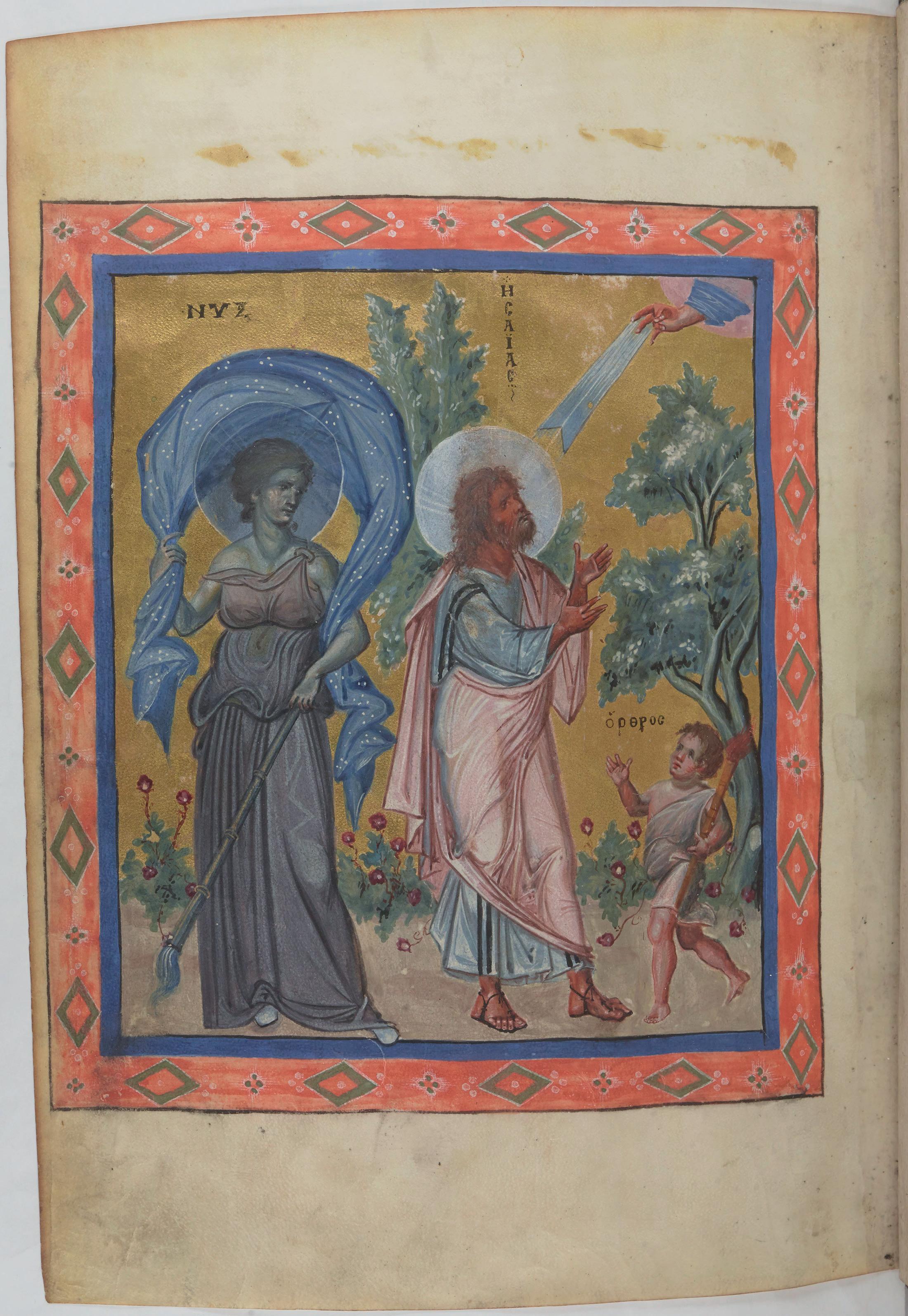
4 minute read
Introduction: “Son of Man, what do you see?
INTRODUCTION
Advertisement
Before bringing forth words, a prophet bears a vision: God in history. The office of a prophet is to discern the presence and the action of God in the often opaque and painful history of a people, and make its interpretation resound. “Son of Man, what do you see?”; with this question God formed and reared prophets, a different breed from previous seers or visionaries. This is still true today. What do you see in the midst of our time? A problem to be solved? A suffering to alleviate? A plague to be eradicated? What prophets are able to see are not the mere events surrounding a people, but their meaning and therefore a concrete way to interpret history and meet God inside of it.
11
Addressing his priests as Bishop of Rome, Pope Francis called them to “announce and prophesy the future, like sentinels announcing the dawn that brings a new day”.3 This “new day”, our future, the so-called New Normal – the pope warned in his Letter – will either be something new, or it will be something much worse than before. The future of humanity is something the Lord Jesus is calling the Church, both priests and people, to build up with eyes of faith: faith in the suffering, death and resurrection of Christ. We call this the Paschal Mystery: the descent of Jesus into darkness, the underworld, his death, his rising, his victory and the gift of his life-giving Spirit. The Paschal Mystery is the only historical event which has happened, and which is still happening, whose proclamation can heal the world and change the interpretation of history. To see this event is to see the “V-shaped curve” so much longed for during the pandemic.
TEMPTATIONS AGAINST PROPHECY Pope Francis has also warned against the many temptations typical of this time: grumbling over the difficulties we face, trying to resolve them only with substitute or palliative activities, waiting for everything to return to normal, ignoring the deep wounds around us, a paralysing nostalgia for the recent past that makes us say “nothing will ever be the same again”, the imbedded logic of repetition or preservation.
3 Pope Francis, Letter to the Priests of the Diocese of Rome, 31st May 2020.
12
All these temptations can be encapsulated in the attitude of the third servant of the well-known Parable of the Talents in Chapter 25 of Matthew. A man gives to each of his three servants talents – extremely valuable ancient coins – before going away for some time. In the Greek text the word used for “time” is chronos, that is, our history, our present day, the pandemic, our hopes and sufferings. The man in the story is not a money-lender, nor a sower or a reaper; he is the Lord of time, he represents Jesus. Throughout the whole Gospel of Matthew, Jesus has a second name, Emmanuel – “God-iswith-us” (Mt 1:23). The talents in the parable are “of God”, their value given by the very presence of God in them. It is true that all the servants, all of us, are living in a time where the face of God, his voice and his presence have been taken away from us, but we still have his coins, his talents.
The tradition of the Church, from early on, has associated the talents with the Word of God, the events, the facts of our life, through which God speaks to us. These events, these talents – we know from the parable – carry the capacity to bring fruit, the power to generate new events, new life. One event we have all received is of course the present pandemic.
To produce more talents is to enter into this event and see its full meaning; to bury the talent is instead to dissociate oneself from the event. While still recognising that there is something in it which is “of God” – that is, God is calling us to engage with it, open a dialogue with it, trade with it – the third servant of the parable does not enter the event
13

he has received. And so, that event buried underground remains sterile, its meaning does not appear, the new does not come from the old, and the servant is left in darkness and suffering. In the parable there is a unique expression, not used elsewhere in the New Testament and the Greek version of the Bible, “the joy of the Lord” (Mt 25:21,23). Those servants who trade their talents and produce more, experience this joy. By entering into the events of our life – including the pandemic – at a deeper level, beyond their literal sense, our life can take on a new meaning.
In Christian art there is a beautiful image which describes the office of a prophet. Represented, in this miniature from the tenth century Paris Psalter, as standing between the Greek personifications of Night (νύξ) and of Dawn (ὄρθρος), the prophet separates them, and makes the transition from one to the other happen. With eyes raised to heaven, the prophet “sees” the hand of God, the action of God in history.

ddd
The transition between the night of this pandemic and the dawn of a new day is not so much a chronological one, Covid and post-Covid – no; it has to do with whether or not we are able to discern the presence of God and his action in the present. This is why we need prophets, to help us to decipher God’s calligraphy in our history and so lead us out of darkness into a “new day”, and not a post-Covid day only.
15



